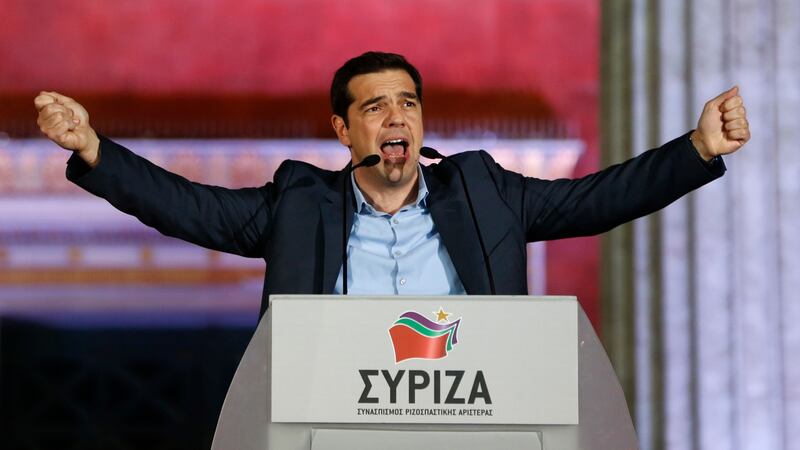Banks and ATM machines were shut throughout Greece today on the first day of capital controls, a dramatic twist in the country's five-year financial saga.
Despite the closures, pensioners lined up just after dawn at bank branches hoping they would have access to their pensions, which were due to be paid today.
The bank closures came after Greeks rushed to ATMs over the weekend to withdraw money following prime minister Alexis Tsipras' surprise call for a referendum on creditor proposals for the reforms Greece should take to gain access to blocked bailout funds.
The referendum has been set for Sunday, and the government has been advocating Greeks vote against the proposals.
The capital controls are meant to stem the flow of money out of Greek banks and spur the country's creditors to offer concessions before Greece's international bailout programme expires tomorrow.
Once that happens, Greece loses access to the remaining 7.2 billion euro of rescue loans, and is unlikely to be able to meet a 1.6 billion-euro debt repayment to the International Monetary Fund due the same day.
The accelerating crisis has thrown into question Greece's financial future and continued membership in the 19-nation shared euro currency - and even the European Union.
Asian stock markets sank with indexes in Tokyo, Hong Kong and Sydney down more than 2%. Oil prices and the euro also fell. The Athens Stock Exchange remained closed.
Overnight, massive queues formed at gas stations, with worried motorists seeking to fill up their tanks and pay with credit cards while they were still being accepted.
The government announced bank transaction restrictions late last night, limiting daily withdrawals to 60 euro per person per ATM card. Automatic teller machines were expected to reopen later today, while banks would remain shut for at least six days.
Although credit and cash card transactions have not been restricted, in practice most retailers were not accepting card transactions this morning.
Many of Greece's pensioners do not have bank cards and collect their pensions directly from the bank tellers. Long queues of elderly Greeks formed at neighbourhood bank branches, despite them being told the banks would not open for the day.
Deputy Minister of State Terence Quick said special arrangements would be made for pensions. Speaking on private Antenna television, he said pensioners would be allowed to access their full pensions in cash due to the fact that many do not have bank cards.
Under the bank transaction restrictions, electronic transfers and bill payments are allowed, but only within the country. The government also stressed the controls would not affect foreign tourists, who would have no limits on cash withdrawals with foreign bank cards.
For emergency needs, such as importing medicines or sending remittances abroad, the Greek Treasury was creating a Banking Transactions Approval Committee to examine requests on a case-by-case basis.
The decision to impose capital controls came after a Bank of Greece recommendation, Ms Tsipras said during a televised address last night.
Mr Tsipras blamed the Eurogroup, the gathering of the eurozone's finance ministers, and its decision to reject a request for the bailout programme, which expires on June 30. He again asked for it to be extended by a few days to allow for a referendum.
The referendum decision, ratified by Parliament after a marathon 13-hour session that ended in the early hours of yesterday, shocked and angered Greece's European partners. The country's negotiations with its European creditors have been suspended, with both sides accusing each other of being responsible for talks breaking off.
Mr Tsipras also blamed the European Central Bank's decision yesterday not to increase the amount of emergency liquidity the lenders could access from the central bank - meaning Greece has no way to replenish fast-diminishing deposits.
"It is now more than clear that this decision has no other aim than to blackmail the will of the Greek people and prevent the smooth democratic process of the referendum," Mr Tsipras said. "They will not succeed."
